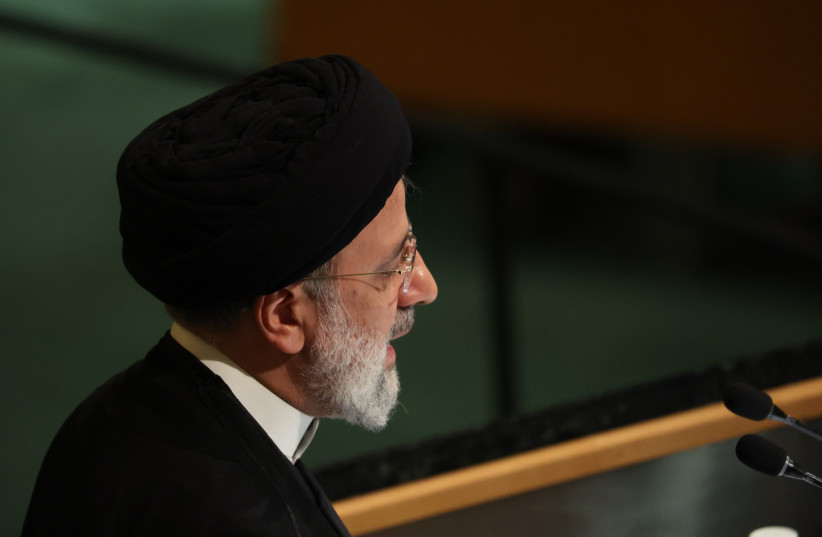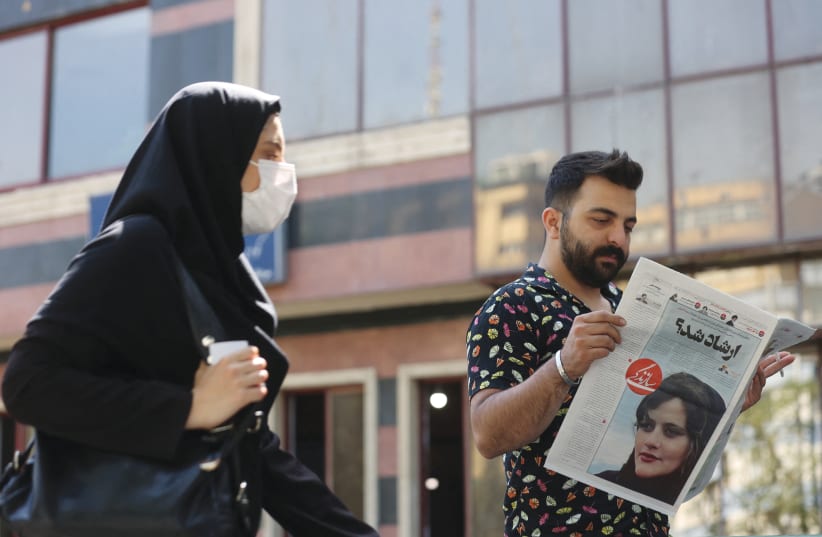This past week, practically the entire country of Iran exploded over the death of 22-year-old Mahsa Amini, arrested by Iran’s infamous morality police for improperly wearing a hijab (a criminal offense in Iran). She was beaten and later died of her injuries. The response from the people of Iran has been overwhelming.
Iranians once lived in an extremely progressive and liberal country, but for 43 years now have suffered under the terrorist dictatorship of the Ayatollah – a radically Islamist regime known for its barbarity, cruelty, and misogyny. Mahsa’s death, however, has sparked an uprising. The people have had their fill of systematic oppression, in particular against women. Through massive protests and the help of social media, Iranians are doing all they can to reclaim their country. Sadly, the West appears to be failing them yet again.
From the very start of the protests, the movement was women-led, with initial slogans being “women, life, freedom.” With the hashtag #MahsaAmini, videos began circulating across social media showing Iranian women cutting their hair and burning their hijabs to protest against the Islamic regime and its brutal morality police. The protests spilled into the streets as tens of thousands of Iranians gathered fearlessly, men and women, burning hijabs in public, dancing (another illegal activity for women in Iran), and chanting, “death to the dictator!” in the face of violent regime police.
Yet at the same time as Iranians were fighting for their basic freedoms and for equality between men and women, the United States – which is supposed to be a beacon of freedom and democracy in the world – welcomed Iranian President Ebrahim Raisi, also known as the “Butcher of Tehran” for his role in mass executions and torture of political dissidents. Raisi touched down in New York to address the UN General Assembly, yet should never have been granted a visa.
The US prohibits issuing visas to leaders who have threatened US leaders or have carried out terrorist activities. Given that the Iranian Revolutionary Guard Corps (IRGC) is a terror group in the United States, the fact the US would grant Raisi a visa is appalling and disrespectful to Raisi’s victims and the Iranian people.


As if that wasn’t sickening enough, shortly before Raisi addressed the UN, he conducted an interview with 60 Minutes in which he blatantly refused to recognize that the Holocaust occurred. Later, in his UN speech, he criticized the United States and praised late IRGC Commander Qasem Soleimani, a man responsible for countless acts of terrorism.
WHILE 60 MINUTES’ Leslie Stahl – in a hijab – was speaking with Holocaust-denying Raisi, Iranian girls and women were burning their hijabs in the streets under threat of arrest, beatings and death by Raisi’s thugs. At the same time as diplomats in the UN applauded Raisi’s racist, hateful drivel in the General Assembly, Iranian civilians were fighting for their lives against the regime which cut off their social media and internet in order to minimize the information that gets out internationally. The fact that the US could enable such abhorrent hypocrisy is stomach-turning and heartbreaking.
In conversation with Iranians
I’ve spent the better part of the week speaking with Iranians on the ground and hearing their experiences. What the women of Iran feel is nothing short of betrayal – of the values for which the West is supposed to stand, betrayal of their own leaders who have hijacked their country since the revolution in 1979, and betrayal of a largely indifferent international community and complicit media which has put the human rights of Iranians on the back burner.
To put it in the tearful words of one young girl in Tehran I spoke to, “What will it take for the West to realize what we are going through? Don’t they support women’s rights? Why have they abandoned us?”
For years, the prevailing narrative in the mainstream media in English and in the international community has been that Iran’s biggest issue is the nuclear program and a nuclear deal. But the problem with the Iranian regime runs much deeper. Their human rights abuses are atrocious, and their funding of global terrorism is unmatched.
Indeed, even in these protests, regime police are dressing as plainclothes protesters in order to kidnap and arrest protest participants, using ambulances and taxis to drive injured Iranians to the police station instead of hospitals, and occupying balconies inside cities to open fire at civilians in the streets below.
It’s also common knowledge that the regime is bringing in terrorist mercenaries from Hezbollah to carry out killings of Iranian civilians in the protests. Yet the international community is largely unconcerned with Iran’s brutal treatment of its own people – even when Iran shut down the internet in the last round of popular protests and slaughtered 1,500 Iranians.
And yet despite this painful betrayal by the West, which Iranians were counting on to champion the liberal values they are now prepared to die for, Iran’s citizens have inspired the world this week through social media. #MahsaAmini was trending globally within the first two days of protest, and internationally the women of Iran inspired countless voices around the world with their courage.
Social media was filled with the stories and footage of Iranians fighting back against unimaginable tyranny, and inspired protests against the Iranian regime in many other locations around the world as well – including in New York outside the UN where Raisi was speaking. The world and the West specifically has failed the Iranian people in overthrowing the totalitarian terrorist regime which controls Iran – but the war isn’t over, and many voices in the West are finally awakening to the truth about Iran. May these protests be a final turning point for international, universal support for regime change in Iran.
Women, life, freedom.
The writer is the CEO of Social Lite Creative and a human rights activist.
